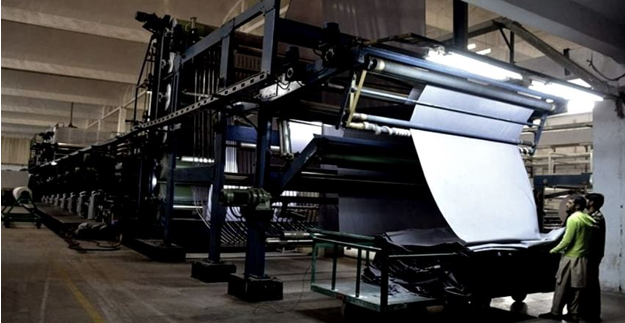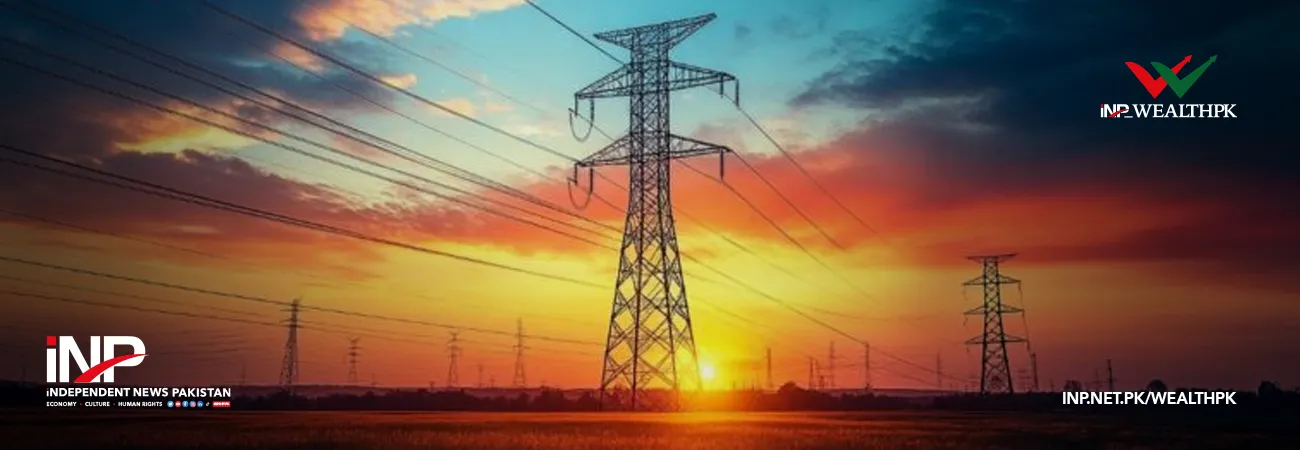INP-WealthPk
Moaaz Manzoor
The government plans to restore regionally competitive energy tariffs for the export-oriented textile and apparel sector to help reduce production costs and strengthen Pakistan’s position in international markets. The proposed measures are included in the draft Textile and Apparel Policy 2025–30, which identifies affordable and reliable energy as a key requirement for sustaining export-led industrial growth.
According to the draft Textile and Apparel Policy 2025–30 available with Wealth Pakistan, energy pricing has been one of the major challenges facing the textile industry. The document notes that fluctuations in electricity and gas tariffs and the discontinuation of regionally competitive rates in 2023 weakened the sector’s competitiveness. It emphasizes the need for a predictable and cost-effective energy supply to ensure stable production and maintain export momentum.
The draft recalls that during the previous policy period, electricity was provided to export-oriented sectors at regionally competitive tariffs of US cents 7.5 per kilowatt hour from July to August 2020, US cents 9 per kilowatt hour from September 2020 to 2022, and Rs.19.99 per kilowatt hour from October 2022 to February 2023. Similarly, re-gasified liquefied natural gas (RLNG) was supplied at US$ 6.5 per MMBtu from July 2020 to June 2022, and US$ 9 per MMBtu from July 2022 to June 2023.
The discontinuation of these preferential tariffs and the subsequent rise in energy prices, the draft states, severely affected the competitiveness of Pakistan’s export sector. It further notes that the reliability of RLNG supplies, particularly during winter months, remained inconsistent, causing production disruptions and financial losses for manufacturers.
The proposed policy, therefore, calls for restoration and continuation of regionally competitive energy tariffs throughout the next policy period. It highlights that maintaining parity with competing economies such as Bangladesh, India, and Vietnam is critical for ensuring Pakistan’s textile and apparel products remain price-competitive in global markets.
The policy also emphasizes the importance of ensuring an uninterrupted energy supply to industrial zones and export clusters. It recommends the development of dedicated infrastructure for power and gas distribution in major manufacturing centers to reduce supply bottlenecks. The government plans to work with energy regulators and distribution companies to guarantee reliability and minimize outages.
In addition to energy pricing, the draft policy focuses on promoting efficient and sustainable energy use within the textile and apparel industry. It calls for measures to improve energy efficiency through the adoption of modern technologies, the replacement of outdated machinery, and the optimization of production processes. The National Energy Efficiency and Conservation Authority (NEECA) will support audits and benchmarking programs to help industrial units identify and implement energy-saving measures.
The document also highlights the need for integrating renewable and clean energy solutions into industrial operations. It proposes incentives for textile manufacturers investing in solar, wind, or hybrid energy systems to reduce dependency on conventional energy sources. The policy encourages collaboration between public institutions, energy companies, and the private sector to expand access to clean and low-carbon energy solutions.
Financial assistance mechanisms are also included in the policy framework to support these initiatives. The State Bank of Pakistan will work with financial institutions to provide credit lines and concessional financing for projects related to energy efficiency and renewable energy adoption. The Export-Import Bank of Pakistan will offer export credit insurance and financial products to reduce borrowing costs and enhance liquidity for exporters.
The draft policy links competitive energy pricing with broader industrial reforms aimed at lowering input costs and boosting productivity. It underscores that consistent energy availability and affordable tariffs are prerequisites for achieving the export targets set for the textile and apparel industry under the 2025–30 policy framework.
The document concludes that ensuring regionally competitive energy tariffs and improving energy efficiency will play a vital role in restoring Pakistan’s industrial competitiveness. It stresses that collaboration among federal ministries, energy regulators, and the private sector will be necessary to implement these reforms and create a predictable and sustainable energy environment for the textile and apparel sector.

Credit: INP-WealthPk









